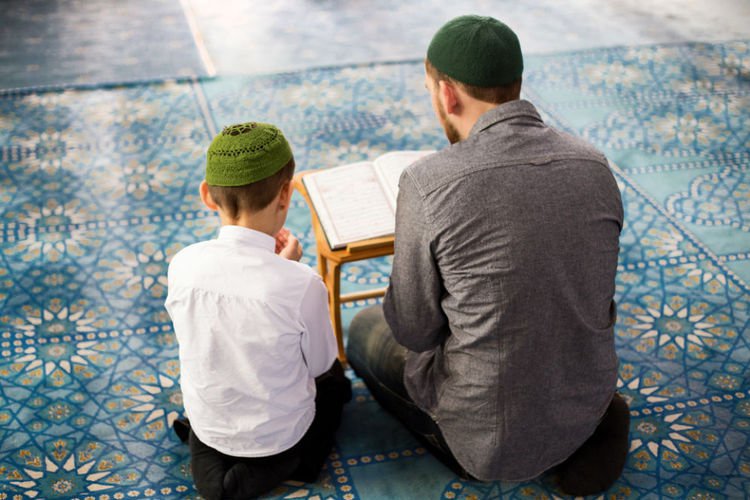Children are a cherished blessing and responsibility, and the Quran beautifully highlights their value in shaping a brighter future. At Quran Utla we explore how the Quran guides us to nurture, educate, and care for the next generation with love, wisdom, and faith.
From understanding the rights of children to instilling moral values through Quranic teachings, we help parents and educators unlock timeless lessons that foster growth, kindness, and spirituality in young hearts.
Join us on this inspiring journey to learn what the Quran says about children and empower the next generation with the light of divine guidance!
Until What Age Is a Person Considered a Child in The Prophet’s Time?
In the time of the Prophet Muhammad (PBUH), the term “child” generally referred to individuals who had not yet reached the age of maturity or adulthood. This maturity was typically marked by physical and mental development, and was often indicated by the onset of puberty.
Age of Maturity (Puberty)
In Islam, adulthood (or “bulugh”) is typically determined by the age at which a person reaches puberty, which varies among individuals. The Prophet (PBUH) emphasized that a child is considered to have reached maturity when they experience signs of puberty, such as:
- The onset of menstruation for girls.
- The growth of pubic hair or the production of semen for boys.
Once a person reaches puberty, they are no longer considered a “child” in the Islamic sense, as they are then expected to fulfill the religious obligations such as prayer, fasting, and other duties.
Specific Age in Hadith:
Although the exact age may vary, in the time of the Prophet (PBUH), children were typically considered to have reached adulthood around the ages of 12-15. However, the exact age could differ depending on the individual’s development. There are no specific Hadith that state an exact age limit for childhood, but the transition from childhood to adulthood was understood to occur with the signs of puberty.
Example from Hadith:
- Aisha (RA) reported that the Prophet Muhammad (PBUH) said: “The pen is lifted from three: from the sleeper until he wakes, from the child until he reaches puberty, and from the insane until he becomes sane.”
(Sunan Ibn Majah)
This Hadith clarifies that a child is not held accountable for their actions until they reach maturity (puberty). Therefore, in the time of the Prophet (PBUH), a person was considered a child until they reached the age of puberty, which typically occurred between 12 and 15 years old, depending on individual development.
What Does Allah Say About Having Children?
In Islam, having children is considered a great blessing and a divine gift from Allah. The Quran highlights the significance of children, their role in family life, and the responsibility parents bear in raising them with love, care, and responsibility. Allah’s teachings emphasize gratitude, responsibility, and the recognition that children are a part of life’s tests and rewards.



